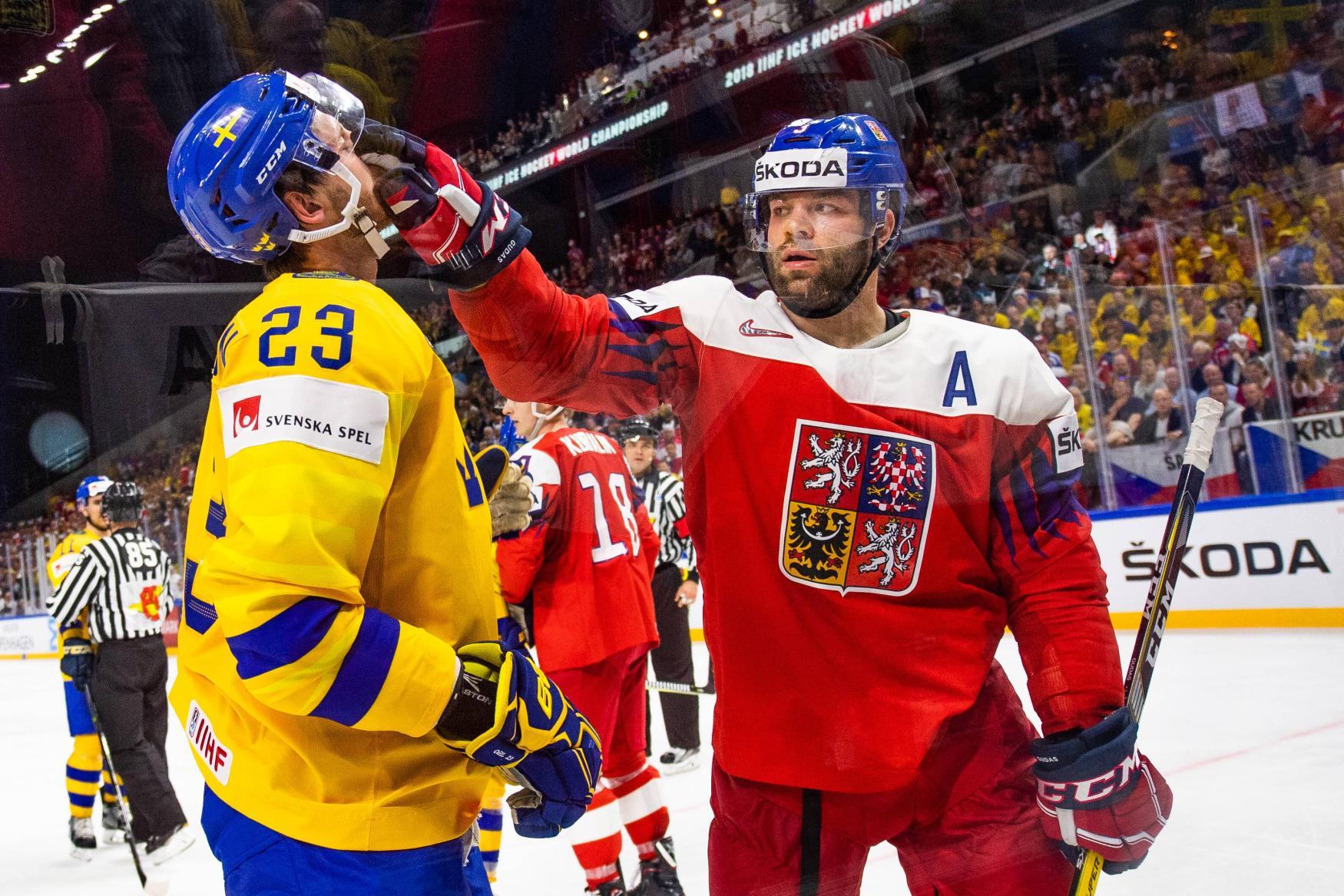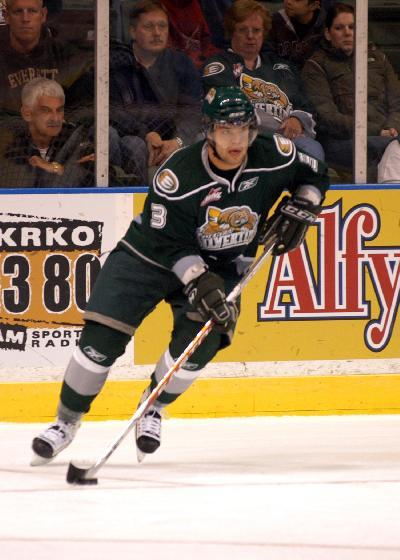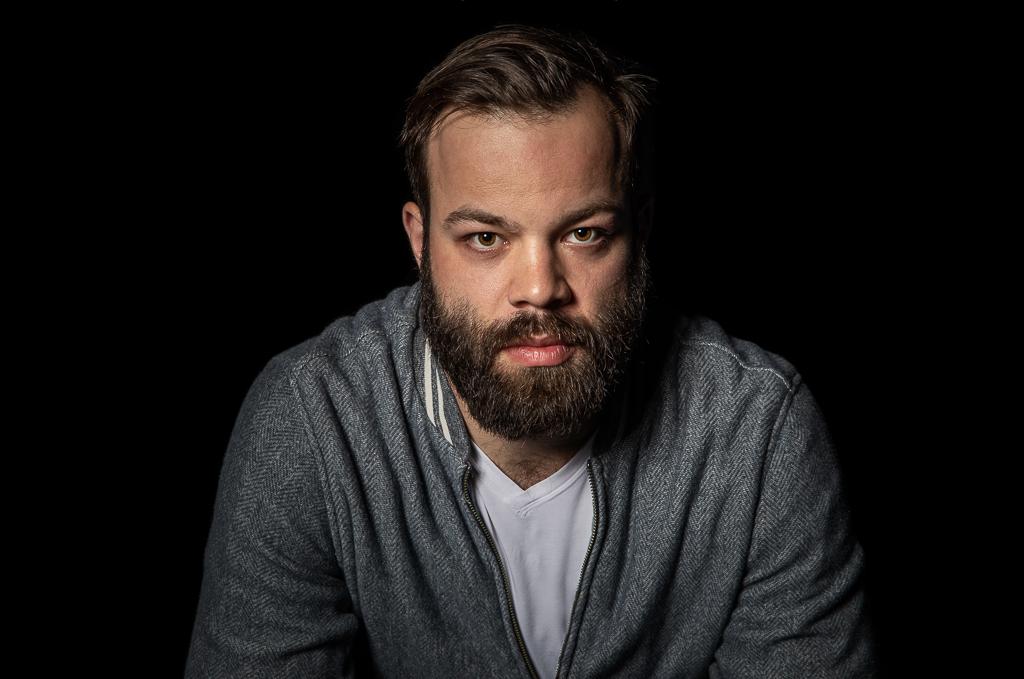Dog eat dog
Radko Gudas
ice hockey
Cold as fuck. That was my first impression of America. And it came after I stood in the summer heat of California, making an expensive call from a Czech number to a driver who had missed me three times in front of the arrival terminal at the airport.
I was only 19, but I already knew damn well that in the NHL, you arrive at the arena in a suit and tie. I had spent 20 hours traveling through London, dragging my suitcase, a bag with gear and some hockey sticks. But when I got into his car all sweaty, that car must have been air conditioned to 54 Fahrenheit. I was suddenly freezing. It was cold as fuck.
It was a pretty wild journey in all respects. I doubt the official at the Turkish airport had ever heard of hockey. There was no point in explaining to him what it meant when an agent called to arrange for me to attend an NHL rookie camp. When he asked why I was leaving Turkey sooner than expected, and why I was by myself, I had a hard time answering that a sudden work opportunity had presented itself. In the end, he budged.
I was in the middle of a two-week family vacation. Nobody had drafted me for the second straight year. Suddenly, I was supposed to report to Los Angeles in five days. It required a lot of quick arrangements, I had never flown alone before, but I got on a bus at the hotel and after the aforementioned trouble at the airport, where they also took a knife from my backpack, I took the nearest flight to Dresden, where my grandfather from Liberec picked me up.
I was heading to L.A. in two days, but they had sent my ticket from the Kings to the wrong email address, so the lady at the airport had to help me find out what time I was flying. Eventually, all sweaty, I sat in that icy car that took me to my first taste of the NHL world.
I opened the dressing room and there were players in flip-flops, T-shirts and shorts. "Where are your suits?" I asked. “We only wear them for games,” they replied, amused by my outfit. Whatever. At least I drew attention to myself before we even stepped on the ice.

The camp was incredibly tough, from 6 in the morning with a lunch break until 6 in the evening. They were not going easy on us. Although I arrived straight from vacation, I had summer training behind me, so I had enough strength. I put everything into it. In one practice we played five-on-five. One dude picked up the puck against me in the neutral zone and I waited for him.
His helmet flew somewhere in the stands. I caught him off guard.
"Wow, I like the way you play," Thomas Hickey, the No. 5 pick of the 2007 NHL Draft and then my defense partner, shouted at me. The guys from the opposite team had a different view, and in the same shift, after I passed the puck away from the boards, two of them hit me at the same time, one from each side.
On the bench, Kyle Clifford, a big guy who became a regular Kings player, told me: "If I played against you, I'd fight you after that.
"What?" I didn't understand a word he said. Although I finished high school with an A in English, it was completely useless to me here.
"Fight," Hickey gestured to me, holding up his fists.
And I said: “No fight. Never fight.” I was used to hitting whoever I wanted on the ice in the Czech Republic. I quickly gained attention at the camp and everyone saw that I was going all in. That's why when the coaches chose pairs for one-on-one drills in the corner, they gave me to Clifford. He was a madman who only ate meat. He picked up four chickens on a plate, scraped the cheese and sauce off of them, and then swallowed them.
They wanted to see me perform in a fight with him. We would beat each other unbelievably. Once I ended up on my ass, once he did, we were colliding, slashing. One fell, got up, and knocked the other one down again. We didn't give ourselves a second of rest. Three times like that. Each time, I went back to the line with a smile on my face, because I really enjoyed it.
This is exactly what general manager Dean Lombardi noticed, and when we were talking at the end of the camp, he mentioned how much he liked my approach and how enthusiastic I was, and that they would like to know more about me. He invited me to another camp at the end of the summer.
In time, they sent all the boys from the junior and the farm team away and I was the only one left without a contract. In the end, Lombardi told me that they would like to sign me, but since I was invited from Europe and I didn't go through the draft, I could only get a one-way contract according to the rules, and I didn't have what it took to play in the NHL yet. So he told me to work hard, that they’d spend the season watching me and that next year, they had a free choice in the third round, so they would draft me.
"Count on it that we would like you to be a King," he said while saying goodbye. It kickstarted me tremendously. From there, I continued to the Canadian juniors, Everett of the WHL, which the agent and I chose as the best solution, after seeing that I had a chance to play in the NHL.
 I started there by having my coach cut and shave me. I already had a solid beard back then. I shaved for the first time ever in the seventh grade when a girl wrote to me about a sprouting mustache: "Radko, please, shave, you look awful."
I started there by having my coach cut and shave me. I already had a solid beard back then. I shaved for the first time ever in the seventh grade when a girl wrote to me about a sprouting mustache: "Radko, please, shave, you look awful."
But even with the new look, I was successful. In the first game we were losing 2-1 and I scored two goals, which turned the game around. Then everyone in the room celebrated with me and we were so excited. I started great, I played the whole year in the first defense pair with Ryan Murray, who is in Colorado today. With a balance of plus-45, I was one of the best in the league, pretty good for a defenseman. At the time, I did not consider myself defensive. I scored, and I played short-handed and power plays as well. I knocked down opponents. I did everything. And I also learned to fight.
About the sixth game in, I knocked down a player at their bench. A two-meter-tall dude sprang right at me. He crashed into me, I crashed into him and I thought that was the end of it. I turned and hurried to the corner to defend. I then saw in the video what followed. Someone from their team wanted to replace the giant, so he reached for him, swung him back to the bench and followed me. Before he touched me, he dropped his gloves, grabbed me and started hitting me with uppercuts.
I was just holding him, accepting punch after punch directly to my face.
By this time, I had slapped someone across the cage. I had once plucked off a boy’s cage as a teenager, but I hadn't experienced any real fist fights. And now I was just trying to stay on my skates while I got terribly beaten. My head was throbbing back on the bench and I just repeated: "Damn, it's not going to be so fun here."
But at the next practice, our enforcers took me aside and showed me how to behave during a fight. How to stand, where to catch the other off guard and they also advised me to always try to beat back. Most importantly, choose someone as big as me the next time. I shouldn't go after our opponent's biggest fighter; that's what they’re there for.
"Okay, so just always tell me who they are, I don't know them," I said.
This training was useful, because every three or four games, someone jumped on me as soon as I took out his teammate. I had some nice hits. They even carried some boys out on stretchers. I had played against hundred-kilogram guys at home before, and I was used to having to go all-in on every hit, otherwise I would be the one who ended badly. Now 16-year-old boys stood against me, and when I really went all in, they dropped like flies.
In June, Tampa drafted me with their third-round pick, four picks ahead of Los Angeles. At development camp, I showed something similar to what I did at Kings’ the previous year. During the preseason games, I scored a few goals, KO’ed someone on a Wednesday again, and suddenly a rookie contract sat in front of me, promising a start on the AHL team. I was excited. I'll be in the NHL in two or three months, I thought.
It took a little longer. A few years. But let's take it from the very beginning.

Vstoupit do Klubu
Inspirativní příběhy vyprávěné sportovními osobnostmi. Ke čtení nebo v audiu namluvené špičkovými herci. K tomu rozhovorový podcast. Každý týden něco nového.
Did you like the story? Please share it.



